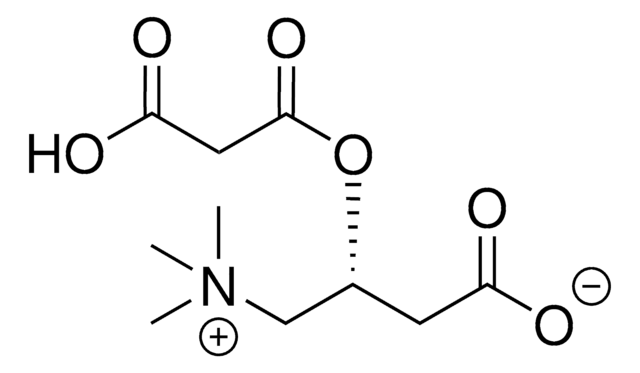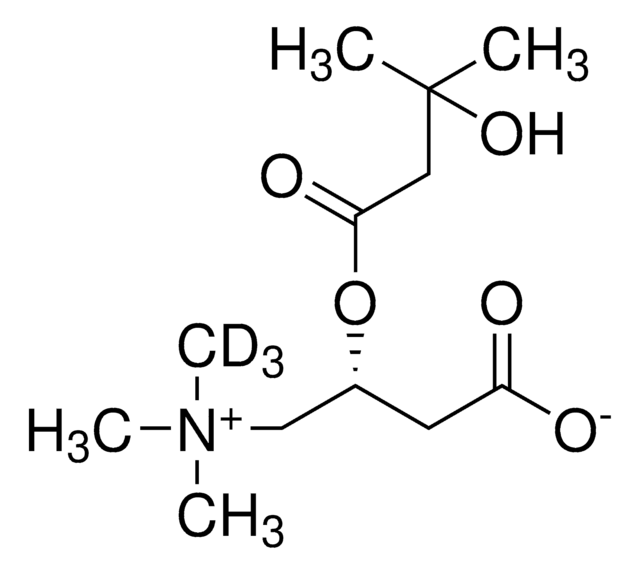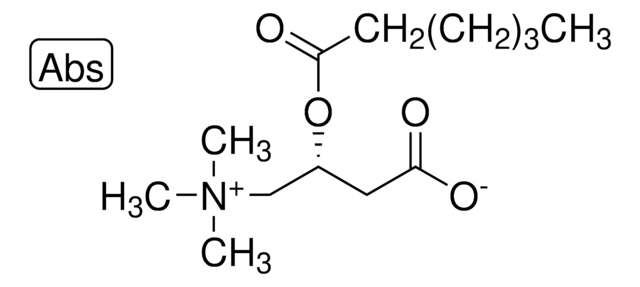72715
Glutaryl-L-carnitine lithium salt
≥98.0% (TLC)
Synonyme(s) :
L-Carnitine lithium glutarate
About This Item
Produits recommandés
Nom du produit
Glutaryl-L-carnitine lithium salt, ≥98.0% (TLC)
Niveau de qualité
Essai
≥98.0% (TLC)
Forme
solid
Activité optique
[α]/D -20±2°, c = 1 in H2O
Impuretés
≤10% water
Couleur
white to off-white
Température de stockage
2-8°C
Chaîne SMILES
C[N+](C)(C)C[C@H](OC(CCCC(O)=O)=O)CC([O-])=O.C
InChI
1S/C12H21NO6/c1-13(2,3)8-9(7-11(16)17)19-12(18)6-4-5-10(14)15/h9H,4-8H2,1-3H3,(H-,14,15,16,17)/t9-/m1/s1
Clé InChI
NXJAXUYOQLTISD-SECBINFHSA-N
Vous recherchez des produits similaires ? Visite Guide de comparaison des produits
Actions biochimiques/physiologiques
Souvent commandé avec ce produit
Code de la classe de stockage
11 - Combustible Solids
Classe de danger pour l'eau (WGK)
WGK 3
Point d'éclair (°F)
Not applicable
Point d'éclair (°C)
Not applicable
Faites votre choix parmi les versions les plus récentes :
Certificats d'analyse (COA)
Vous ne trouvez pas la bonne version ?
Si vous avez besoin d'une version particulière, vous pouvez rechercher un certificat spécifique par le numéro de lot.
Déjà en possession de ce produit ?
Retrouvez la documentation relative aux produits que vous avez récemment achetés dans la Bibliothèque de documents.
Les clients ont également consulté
Notre équipe de scientifiques dispose d'une expérience dans tous les secteurs de la recherche, notamment en sciences de la vie, science des matériaux, synthèse chimique, chromatographie, analyse et dans de nombreux autres domaines..
Contacter notre Service technique








![[(3R)-3-Hydroxyhexanoyl]-L-carnitine analytical standard](/deepweb/assets/sigmaaldrich/product/structures/529/281/b2c430b9-0eaf-42c2-9f83-291338e64187/640/b2c430b9-0eaf-42c2-9f83-291338e64187.png)

